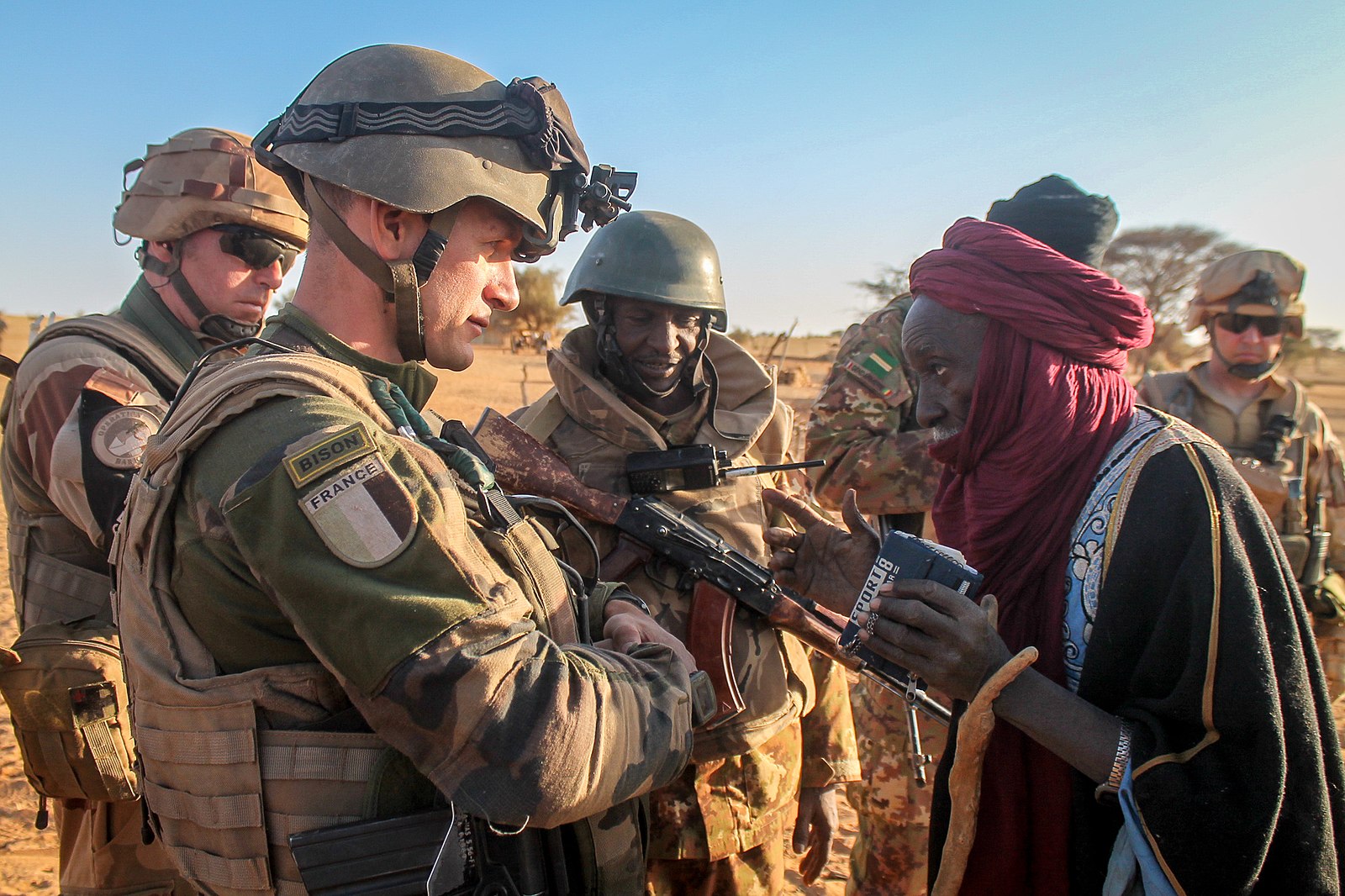African Russian Roulette: Malian civilians try balancing France and Russia.

French soldiers talking with civilians in Southern Mali
Jacob Sagers – Reported civilian killings in Mali at the hand of its government and the Wagner Group, a Russian backed mercenary force, has shocked humanitarian groups and the UN. Wagner Group’s arrival in 2021 alarmed Western officials about growing Russian influence and security efforts in the region. However, the Group’s operations in Mali, Central African Republic, and currently in Burkina Faso, however, are welcome with widespread support throughout Mali – for now.
Geopolitical codes are the calculations a country makes to position themselves in the global world. The calculations look at current and future allies, enemies, defense of their country, and how to justify their decisions to their citizens and the world. Geopolitical codes are constantly looked at through the lens of state actions, but they rarely include the impact from and on individuals. This feminist perspective of geopolitics (which emphasizes the impact upon individual bodies) is showcased by the demand for French withdrawal in Mali, and in other former French colonial states, came not just from their governments, but through widespread protest. Civilian actions influenced state policy and showcases the power they hold. Reports of rape from French soldiers on Malian women, alongside mixed anti-terrorist operation results, fueled public resentment and calls for withdrawal. To some it feels like a continuation of their subjugation from the colonial era. However, Malians still desire security and generally welcomed the arrival of the Wagner Group, even if the cost is increased Russian influence. The hope is that they can stabilize the region and drive back terrorist groups.
Not everyone was supportive of the Wagner Group, or the French withdrawal. Last year’s civilian massacre at the Malian village of Moura by the Wagner Group and the Malian government was not just a news headline or precursor for what’s to come. People were forced to relocate, killed, lost family, or had to alter their lives. The Malian government’s persecution of minorities may spark violence in the region. Furthermore, civilian support for Russian military presence and their government may rapidly decline if war crimes continue against civilians. Public opinion may switch back in favor for French intervention, found in the early 2010s, or perhaps for Mali’s own self-determination. The question is, if an outbreak of violence or genocide does occur, will France intervene on behalf of self-interest and civilians? Or does focusing its influence on other countries, such as Niger, and dealing with Ukraine and domestic politics leave Mali to a Russian fate.
Picture Credit: Photo distributed under the Creative Commons Attribution-Share Alike 4.0 International license. Source

